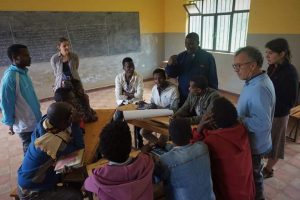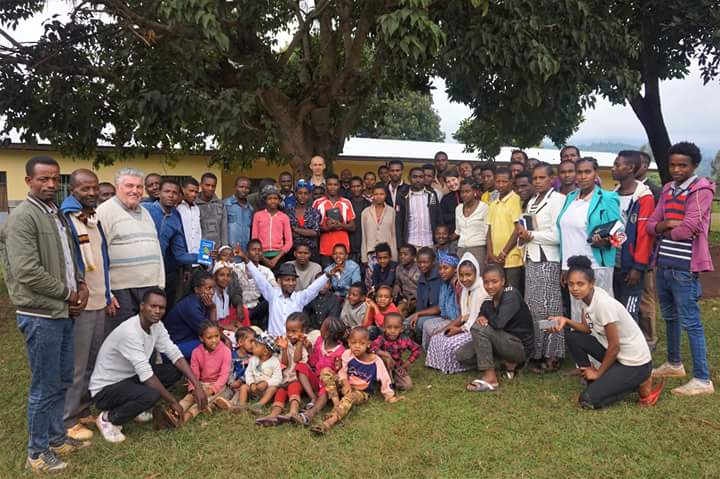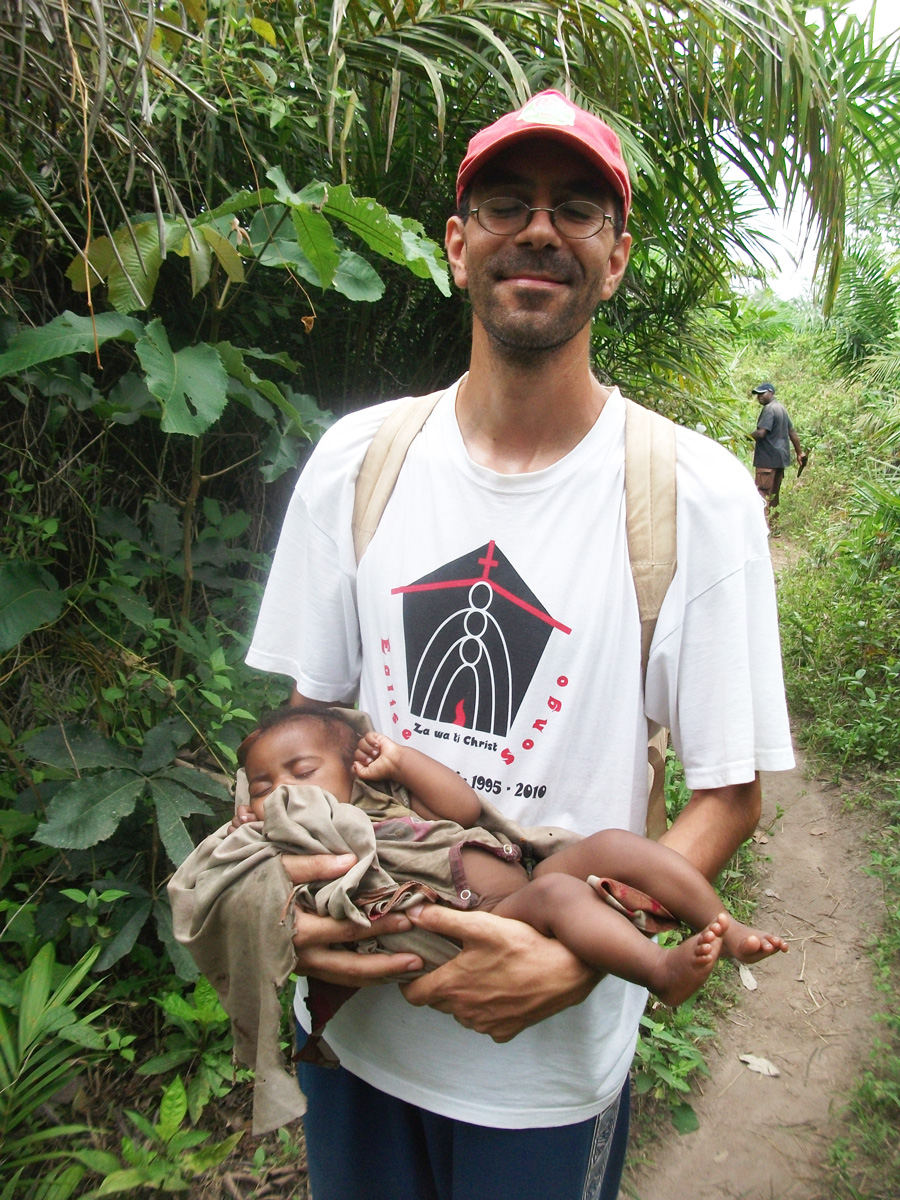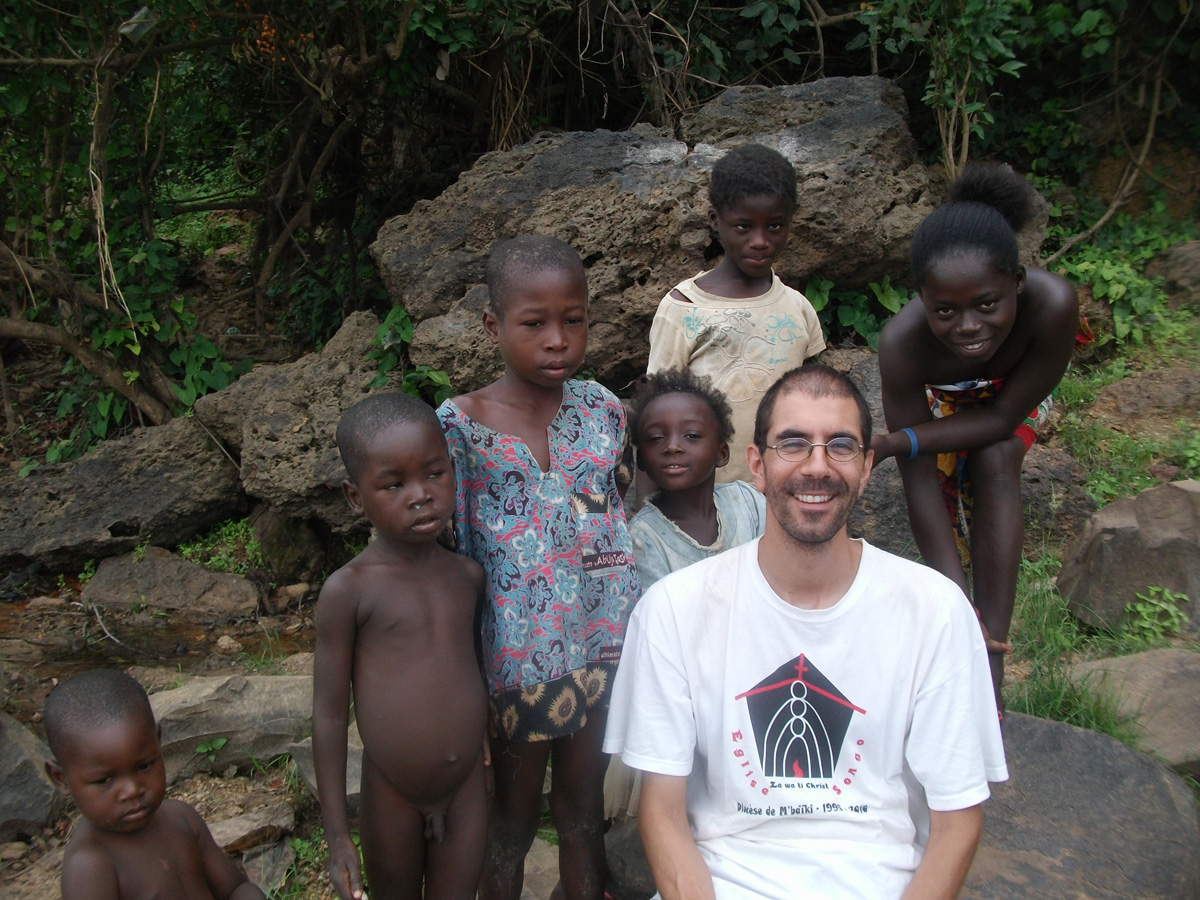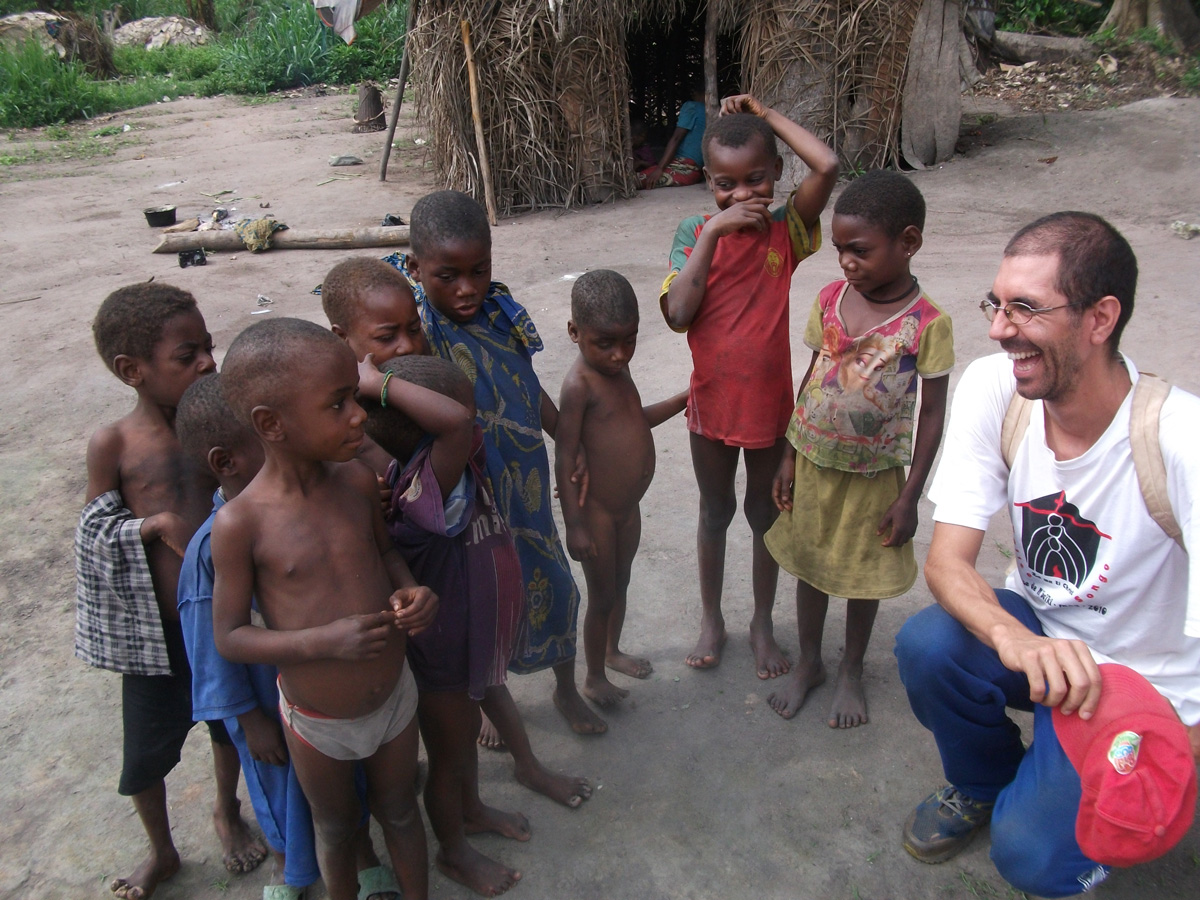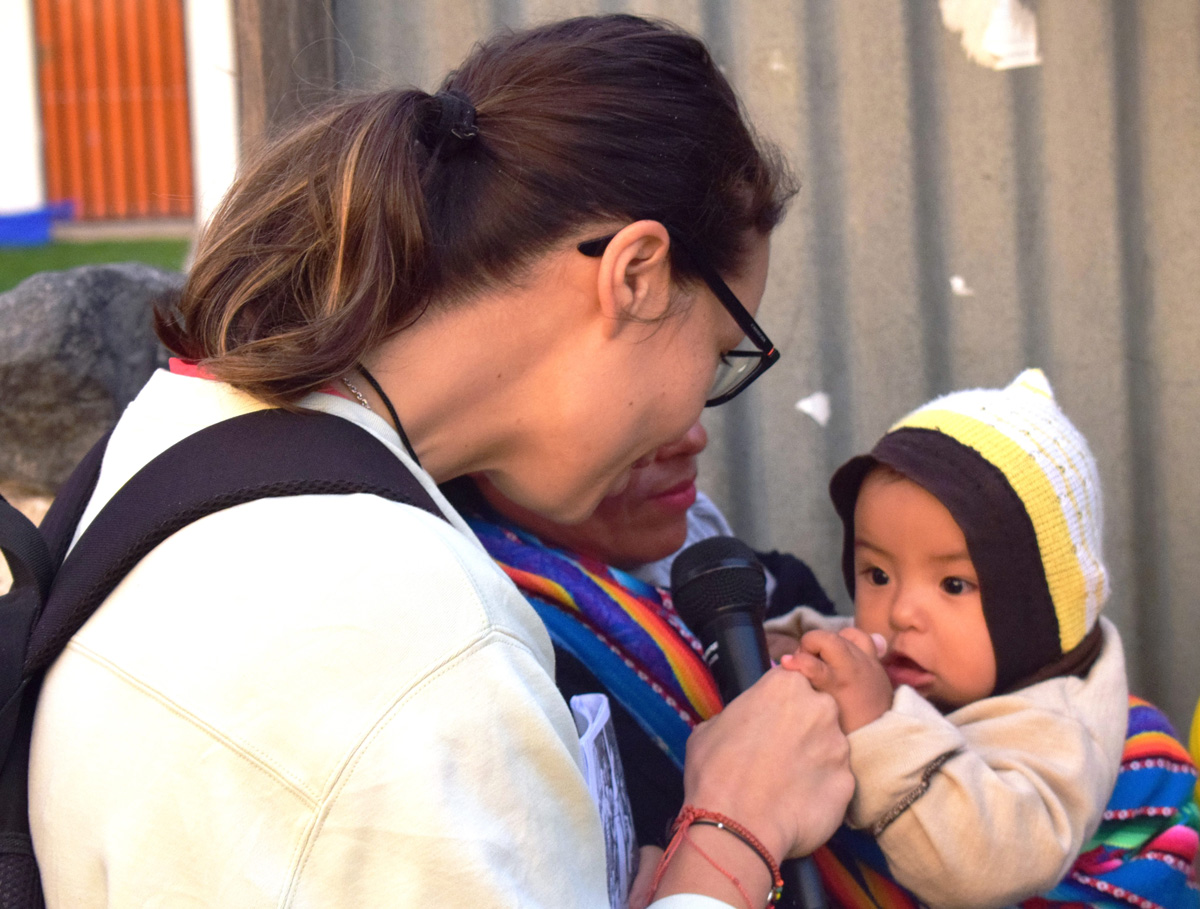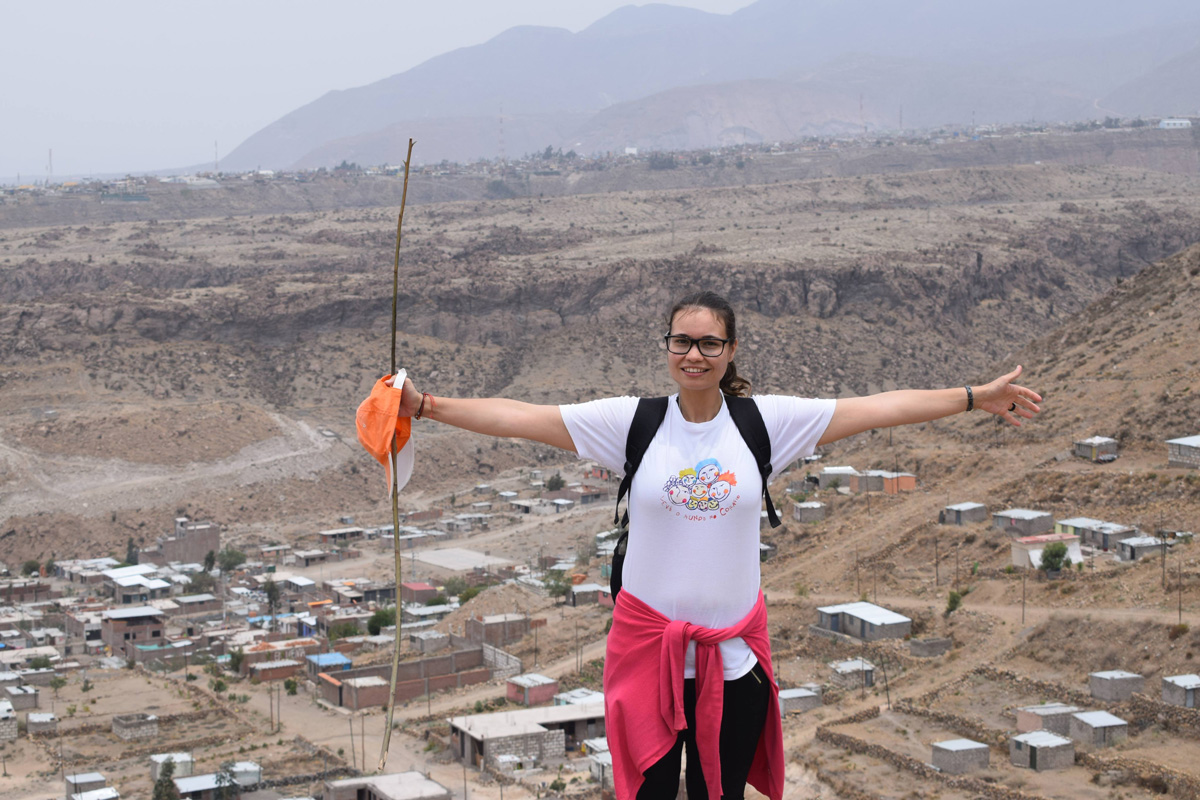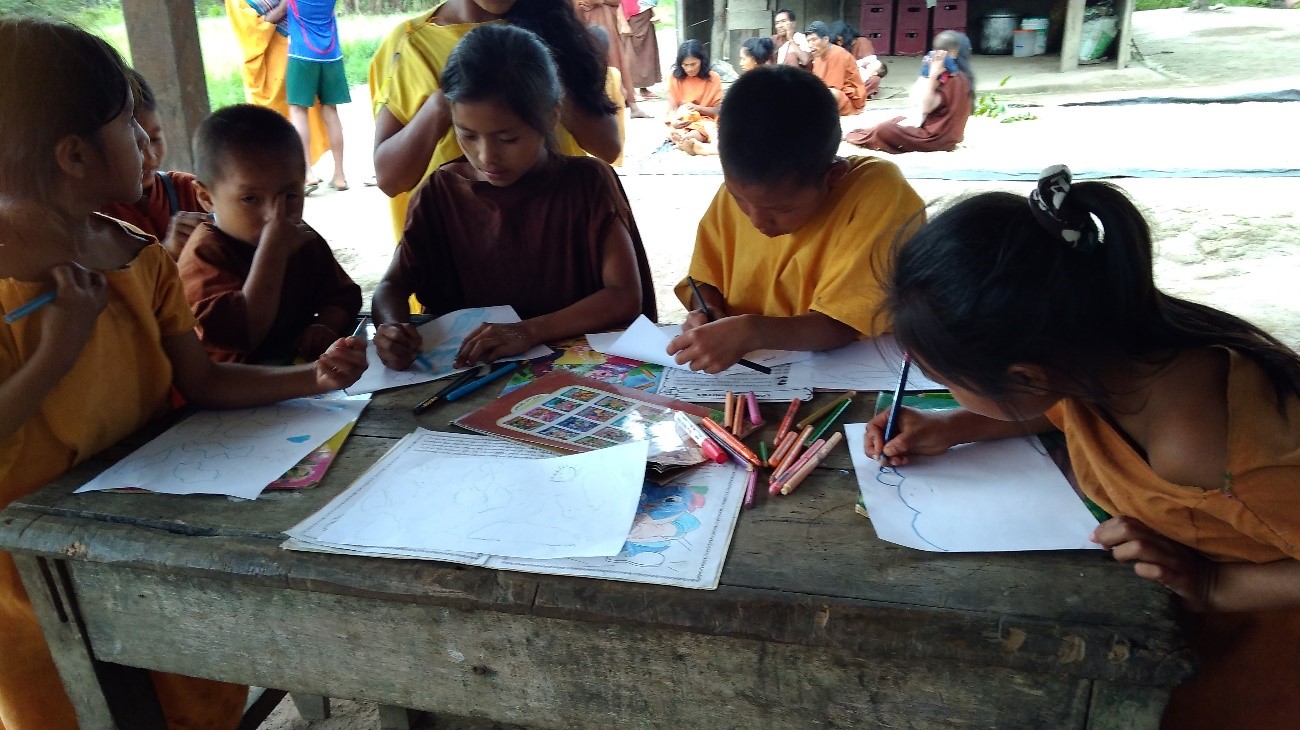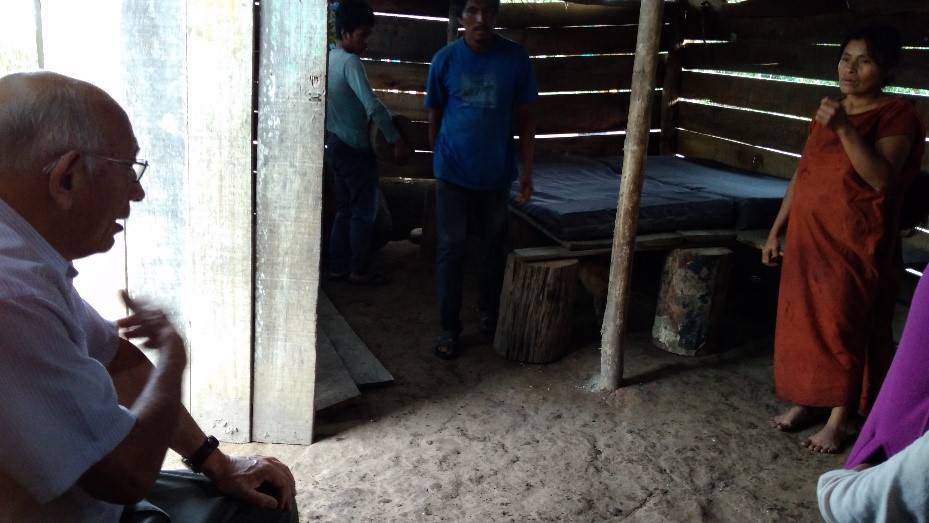 We arrived in Pangoa with our luggage full of hope and unanswered questions. Where will our mission be? In reality, the Lord has answered in various manners and one answer was for Rosa to be part of this missionary expedition. In prayer we asked the Lord to send missionaries and Rosa, in spite of her difficulties, answered yes. I, too, had some problems, but they were eventually resolved and there was the will of God.
We arrived in Pangoa with our luggage full of hope and unanswered questions. Where will our mission be? In reality, the Lord has answered in various manners and one answer was for Rosa to be part of this missionary expedition. In prayer we asked the Lord to send missionaries and Rosa, in spite of her difficulties, answered yes. I, too, had some problems, but they were eventually resolved and there was the will of God.
We found the community of Pangoa fully involved in the beginning of the Easter Triduum and this, too, was an answer from God’s will. We made ourselves part of the celebration in the parish. First, we accompanied Fr. Oscar in the celebration of Holy Thursday in San Pablo of Mazarronquiari and then during the way of the Cross in Pangao on Good Friday. In the afternoon we arrived in Santa Teresita, a mission of previous years of which we had heard a lot. We stayed overnight and it was beautiful to celebrate with our brothers in faith in such a remote place. The night came, we ate in a little restaurant and later we shared a bed offered by a neighbor. Before that, we saw a movie that people hardly understood, but it make them laugh.
On Holy Saturday we celebrated again in the parish and prepared to reach our final destination of San Pablo in Mazaronquiari. I was happy to know that we were going to be in a poor and remote place. This was another answer, as the Lord chooses his favorites. Well knowing that we would not be comfortable there, we accepted it in faith.
We arrived on Monday very early because at 7:00am they were going to close the road for repairs. When we arrived it was not clear where we would stay. In reality, it was a space the size of a sports arena with 7 or 8 little houses around it. There was not much to choose. But the coordinator decided to give us a room made of lumber and with a tin roof. It was the best he had. Two neighbors brought six logs and several planks to make pallets on which to sleep. Next to that they placed two logs and a table. So even the kitchen was ready, very simply. We travel light so it was not difficult to make our beds and settle down.
The children arrived in the afternoon and drew us out of our planning because we had to start the catechesis, so that we got into it and started by speaking of God the father and creator. The kids are the engine of our days and steal many smiles from us. They are very attentive to our needs and are ready to give us a hand. Pablo, the founder of the community from whom it takes its name, never ceases to visit us and bring us something to eat such as yucca or local pumpkins. He is very kind. The mothers also send us through their children some fruit or cooked yucca. The problem is to eat it all.
Besides the catechesis we are also organizing celebrations and the rosary. Truly, here what you can theorize upon is very little, and the practice is better, so that a greeting, a conversation, play with the kids or watch a movie is the best witness of Christian love that we can give. This way our catechesis our into a space where to learn about God and develop creativity.
San Pablo de Mazarronquiari
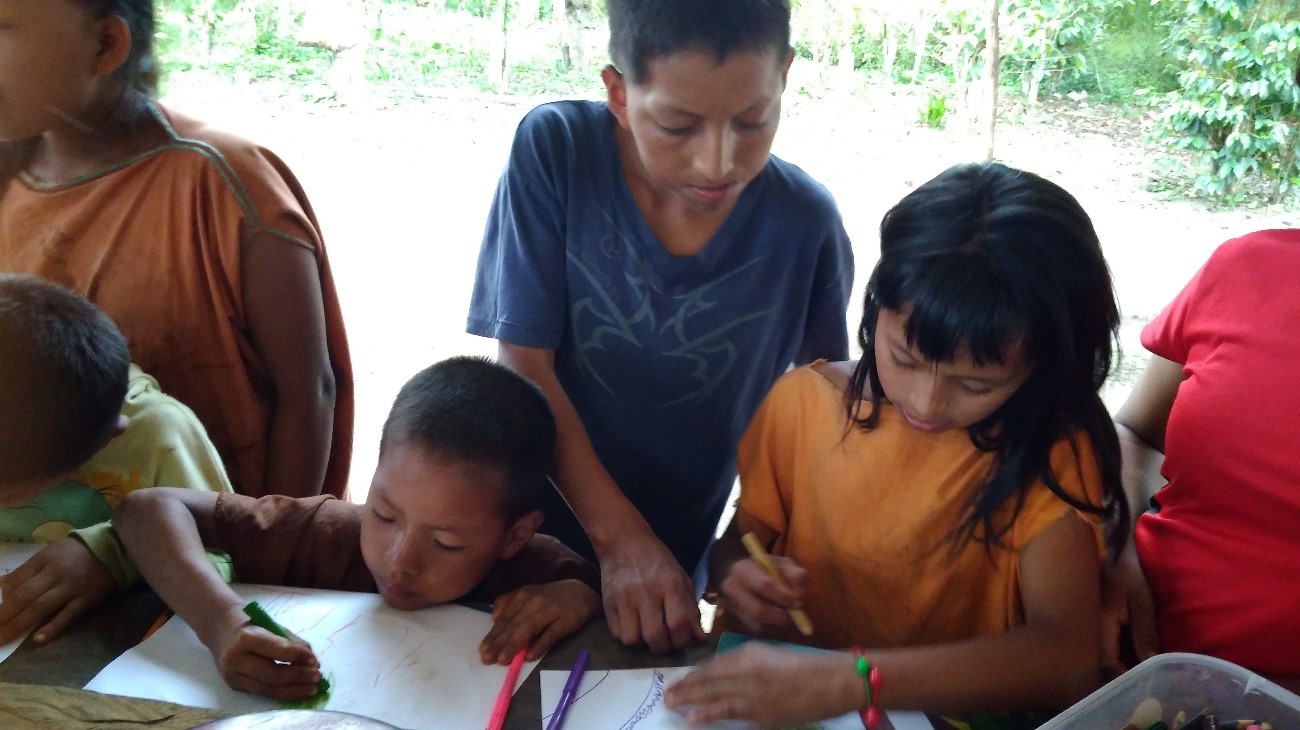 It is an attachment of the Native Community of Mazarronquiari. It was started by three families who eventually grew and are now 20. For the majority, they are women and children who wear the customary cushma (a tunic). But the young men no longer wear it. They leave to go to work in the morning, the children go to school very early and the women go to the fields or start cooking. Several families do not live at the center, but a 10 or 15 minute walk away. The school can be reached in half an hour walking fast.
It is an attachment of the Native Community of Mazarronquiari. It was started by three families who eventually grew and are now 20. For the majority, they are women and children who wear the customary cushma (a tunic). But the young men no longer wear it. They leave to go to work in the morning, the children go to school very early and the women go to the fields or start cooking. Several families do not live at the center, but a 10 or 15 minute walk away. The school can be reached in half an hour walking fast.
The founder, who has been here for about 30 years and was one of the first to get here, tells me about the place. With a proud smile he tells me how they named the place after him. Opening a Catholic church was a characteristic of the place. Other communities have evangelical churches and do not receive a priest well. Here they have two catechists and many people are married in church. It is a sign that the will of God wanted to bring us here to serve them.
Lights and shadows
This is a very young community, the parents are not over 35 and there are children everywhere. They are always smiling and really want to learn despite their needs. They do not seem to notice. Coffee is their main source of income. They plant it and pick it. Yucca is their basic source of food. But fruits are also part of their daily diet.
Education centers, from primary to secondary, are fairly near and available to the children. There they receive breakfast and lunch, a fact that eases family expenses and gives sufficient nutrition to help them study. They all start early and come home around 2:00 or 3:00 pm. The parents do their best to send them and buy the necessary supplies.
However, this is not enough. Here I am realizing that you cannot develop a place by only offering partial solutions rather than integral development. At the end of secondary education, if the girls stay home, they only have one choice, to be young mothers and start a home, repeating the cycle of survival and poverty. I saw two 18 year old girls pregnant and one 17 year old with a child in arms. It surprises me to touch this reality. Especially when one who finished secondary school last year asked me for work and I asked myself what alternative she would have here. She wants to work, but not in the coffee fields, after all why did she complete secondary school?
It is sad to see the lack of opportunities and the big question is: Why study? Is it a salute to the flag just to say that education is obligatory? In the end she left and they eventually found her in a bar of ill repute. Is that where we send them when there are no answers to their concerns? I pray for her, I have no alternative. Her boyfriend is waiting for her to marry her and she cannot aspire to anything more.
Today I asked why they do not roast and grind the coffee. It is more profitable. A young man explained it to me: no one would buy it, because the middlemen want it green… and at low cost. What exploitation! Coffee leaves here at 5.80 per Kg and exporting a Kg is less than 20 soles. But in Miraflores a cup of coffee costs 15 soles. You figure it out. Who profits from the farmer’s toil? Even though they have coffee makers, they cannot sell it. And the only coffee I drink comes from a bag belonging to an international corporation. Contradictions.
The day is coming to an end, but ideas on how to improve people’s lives still swirl through my head. I know that there are projects and investments worth millions, but nothing reaches this far. And the children live with an uncertain future and they only rejoice in that God the Father protects them.
I hope that this experience of sharing life and of seeing close by their hopes and their sufferings will commit me to give with joy my time to proclaim that we have a living God, who knows their pain and has chosen them because he loves justice and exalts the poor. May the Lord give us a heart of flesh to answer his call.
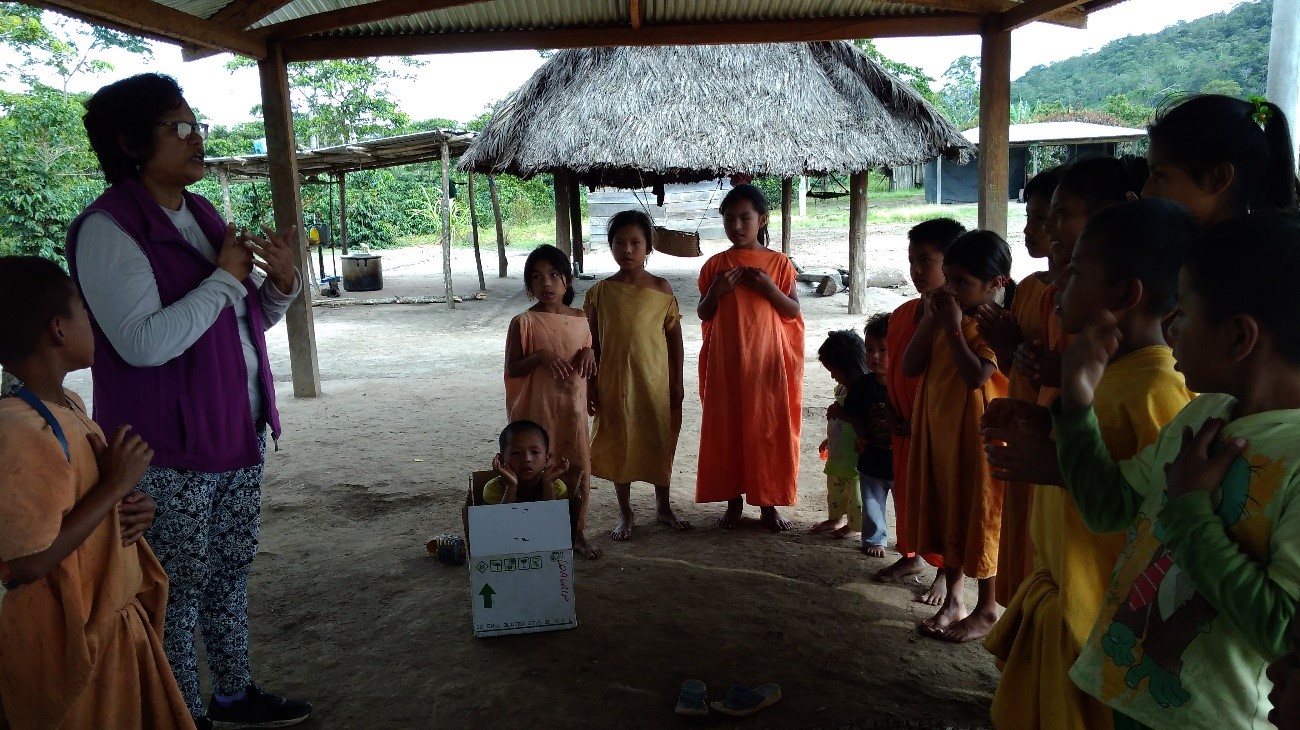 Rocío y Rosa. CLM Perú
Rocío y Rosa. CLM Perú
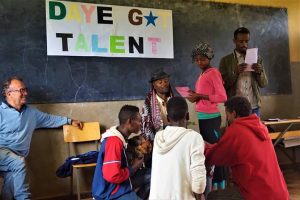 Last Saturday with some members of our Comboni Friends group, we went to Daye – one of the Combonis’ missions among Sidama people. We met there with youth leaders from different outstations, more than 50 of them came. The topic was based on Matthew’s gospel and parable about talents. There was small teaching about, testimony of Adela about her talents and how she uses them to serve others, and then time to work in small groups to discover and share which gifts God gave us and how can we use them.
Last Saturday with some members of our Comboni Friends group, we went to Daye – one of the Combonis’ missions among Sidama people. We met there with youth leaders from different outstations, more than 50 of them came. The topic was based on Matthew’s gospel and parable about talents. There was small teaching about, testimony of Adela about her talents and how she uses them to serve others, and then time to work in small groups to discover and share which gifts God gave us and how can we use them.



